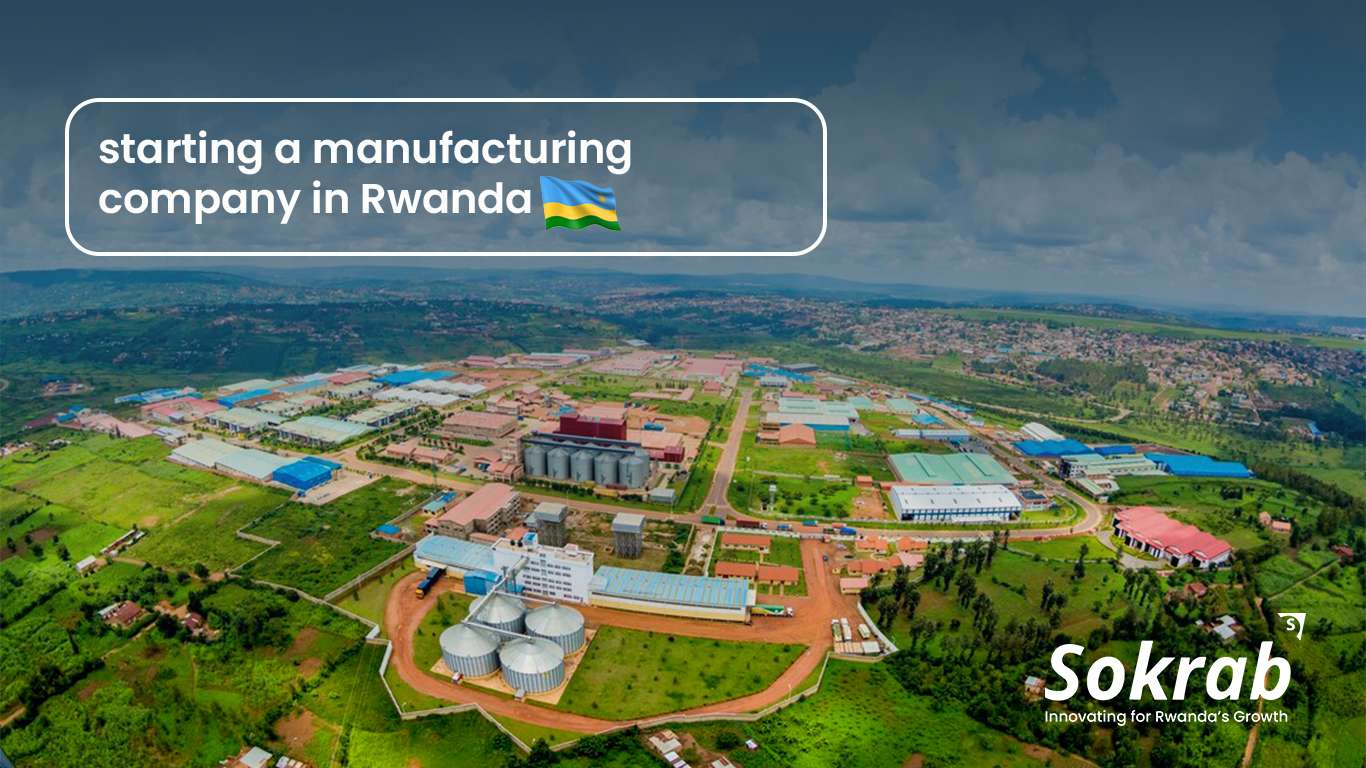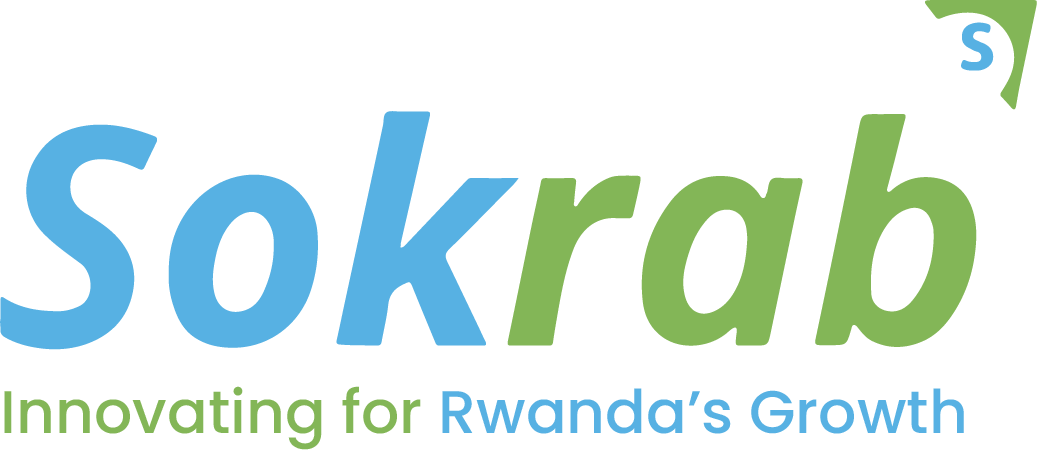Starting a Manufacturing Company in Rwanda[complete guide]

Rwanda, with its rapidly growing economy and strategic location in East Africa, is becoming a prime destination for investors in the manufacturing sector. Whether you’re looking to tap into local markets or leverage Rwanda’s favorable trade agreements for exports, starting a manufacturing company in Rwanda offers vast opportunities. This comprehensive guide walks you through everything you need to know – from securing industry-specific licenses and acquiring land to navigating tax incentives and setting up your operations. Discover how to turn your manufacturing venture into a success story in one of Africa’s most promising industrial hubs. Dive in and learn the essential steps to establish and grow a thriving manufacturing business in Rwanda!
Table of Contents
Toggle1.Industry-specific Licensing for starting a manufacturing company in Rwanda
1.1.Ministry of Trade and Industry (MINICOM):
To operate legally, starting a manufacturing company in Rwanda must obtain the necessary licenses from the Ministry of Trade and Industry (MINICOM). This process includes:
- Submitting detailed business plans and application forms.
- Providing proof of company registration.
- Demonstrating financial capability to sustain operations.
Key Tips:
- Engage with local consultants to navigate the licensing process efficiently.
- Prepare all required documents meticulously to avoid delays.
1.2.Environmental Impact Assessment (EIA):
An Environmental Impact Assessment (EIA) is mandatory for manufacturing companies to ensure sustainable and environmentally responsible operations. The steps include:
- Conducting an EIA study to assess potential environmental impacts.
- Submitting the EIA report to the Rwanda Environment Management Authority (REMA) for approval.
- Implementing recommended measures to mitigate environmental impacts.
Key Tips:
- Hire a certified environmental consultant to conduct the EIA.
- Address any concerns raised by REMA promptly to secure approval.
2. securing Land and Facilities for starting a manufacturing company in Rwanda
2.1. Acquiring Land for Industrial Use
Acquiring the right land is crucial for setting up your manufacturing facility. In Rwanda, you need to:
- Register your business and obtain an investment certificate.
- Purchase or lease land designated for industrial use.
- Ensure compliance with local zoning laws and land use plans.
Cost Insights:
- Warehouse space: $6 per square meter per month.
- Industrial land in Bugesera: $5.5 per square meter including maintenance (or $4 excluding maintenance).
Key Tips:
- The Bugesera Industrial Zone is highly recommended for its strategic location and available infrastructure.
- Negotiate long-term leases to secure better rates and stability.
2.2. Building and Facility Setup
Building and setting up your facility involves:
- Obtaining construction permits from the Rwanda Housing Authority (RHA).
- Adhering to local building codes and safety standards.
- Engaging with reputable construction firms to ensure quality and compliance.
Key Tips:
- Plan for future expansion by selecting land with ample space.
- Work with local authorities to streamline the permit approval process.
3. Importing Machinery and Raw Materials for starting a manufacturing company in Rwanda
3.1.Obtaining an Import License
- Apply for an import license from the Rwanda Revenue Authority (RRA).
- Provide detailed information on the items to be imported.
- Demonstrate compliance with Rwandan import regulations
Key Tips:
- Maintain clear records of all imports to facilitate future audits.
4. Hiring and Managing Labor
Work Permits and Visas for Foreign Employees in Rwanda
For foreign employees, you need to:
- Apply for work permits through the Directorate General of Immigration and Emigration.
- Choose the appropriate visa type, such as investor visas or employment visas.
- Ensure compliance with local labor laws and regulations.
Key Tips:
- Provide comprehensive documentation to support visa applications.
- Stay updated on any changes in immigration policies affecting work permits.
5.Ensuring Compliance and Quality Standards
5.1. Meeting Rwanda Standards Board (RSB) Requirements
Manufacturing companies must adhere to quality standards set by the Rwanda Standards Board (RSB):
- Submit samples of products for testing and certification.
- Provide detailed documentation of the manufacturing process.
- Undergo regular inspections and audits by RSB.
Key Tips:
- Maintain high-quality standards to facilitate smoother certification processes.
- Implement robust quality control measures throughout production.
6. Managing Finances and Taxes
6.1. Opening a Business Bank Account
To handle financial transactions, open a business bank account with a local bank:
- Choose a bank that offers tailored services for businesses.
- Provide all necessary documentation, including proof of company registration and identification of the authorized signatories.
Key Tips:
- Compare banking fees and services to select the best option for your needs.
- Consider banks with strong digital banking capabilities for convenience.
6.2. Financial Reporting and Tax Compliance
Maintain proper financial records and comply with tax regulations by:
- Keeping detailed records of all financial transactions.
- Filing regular tax returns with the RRA.
- Engaging with local accountants to ensure compliance with Rwandan tax laws.
Key Tips:
- Use sokrab accounting software to simplify financial management and reporting.( customized to Rwandan compliances)
- Stay informed about any updates to tax policies and compliance requirements.
7. Marketing and Distribution in Rwanda
7.1. Conducting Market Research
Understanding the local market is key to successful operations:
- Conduct market research to identify demand, competition, and customer preferences.
- Analyze market trends to position your products effectively.
Key Tips:
- Use local market research firms to gain in-depth insights.
- Regularly update your market analysis to adapt to changing conditions.
7.2.Establishing a Distribution Network
For efficient distribution, you need to:
- Develop a robust network to distribute products within Rwanda and for export.
- Partner with local distributors and logistics providers for wider reach.
Key Tips:
- Consider both direct and indirect distribution channels to maximize market penetration.
- Build strong relationships with distributors to ensure reliable product flow.
8. Leveraging Tax Incentives and Exemptions
8.1.Investment Certificate and Corporate Tax Incentives
Foreign investors in Rwanda can benefit from various incentives:
- Obtain an investment certificate if you meet specific investment thresholds.(investment certificate requirement)
- Access up to 7 years of corporate income tax (CIT) holiday for significant investments in priority sectors.
- Benefit from reduced CIT rates, such as 15% for businesses exporting at least 50% of their production
- 0% Rate: For regional headquarters or investors meeting specific criteria, such as investing over USD 50 million.
Key Tips:
- Consult with the Sokrab Advisory to understand eligibility and application procedures.
- Leverage these incentives to reduce initial costs and boost profitability.
- 15% Rate: For businesses exporting at least 50% of production.
- 0% Rate: For regional headquarters or investors meeting specific criteria, such as investing over USD 50 million in priority sectors
8.2. Import & Export Duty and VAT Exemptions
Manufacturing companies may qualify for exemptions on:
- Import duties for capital goods, machinery, and raw materials.
- Value-Added Tax (VAT) on imports of machinery and equipment.
- Exports are zero (0%) rated for VAT purposes, enhancing the competitiveness of Rwandan products in international markets.
Key Tips:
- Prepare detailed applications and documentation to support exemption claims.
- Keep abreast of any policy changes that might affect your eligibility for exemptions.
8.3. Special Economic Zones (KSEZs) and Industrial Park
Rwanda offers benefits for companies operating in Special Economic Zones (KSEZs):
- Corporate income tax holidays for up to 7 years.
- Exemptions from import duties on machinery and raw materials.
- Streamlined customs procedures for easier operations.
Key Tips:
- Consider locating your operations in SEZs like the Kigali Special Economic Zone (KSEZ) for optimal benefits.
- Explore available industrial parks that offer developed plots and infrastructure
9. Important Legal Updates for 2024
9.1. New Land Use Law in Rwanda
Rwanda has introduced new land use regulations for 2024:
- If you purchase land and do not utilize it within 2 years, it may revert to the government unless it is within an industrial zone.
- This law aims to promote efficient land use and development.
Key Tips:
- Plan your land use strategy carefully to avoid penalties.
- Consider securing land within industrial zones to benefit from exemptions.
Conclusion
Starting a manufacturing company in Rwanda offers exciting opportunities given the country’s strategic advantages and supportive business environment. By following the steps outlined in this guide, you can navigate the complexities of licensing, land acquisition, compliance, and more. Stay informed, plan meticulously, and leverage available incentives to establish a successful manufacturing business in Rwanda.
Have more questions or need further assistance? Feel free to reach out!
related Insights
📞 Let's Connect!
Ready to unlock the potential of your business? Reach out to us. Your success story with Sokrab Ltd awaits!
Quick Links
Head Office
Office No. 504, Port Saeed, Al Wahda Building, PO Box 31367 Dubai, United Arab Emirates
Rwanda Office
Kigali, Kacyiru, 68 KG 684 st
Office Hours
Monday - Friday 09 AM - 05 PM
- info@sokrab.com
- +250793897842


